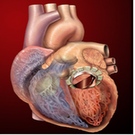Articles tagged with: Graft-Versus-Host-Disease
News»

Results from a retrospective study demonstrate that a set of protein biomarkers found in urine can be used to predict the development of acute graft-versus-host disease in patients who undergo donor stem cell transplantation.
During the study, levels of specific urine proteins were used to generate a "classification factor," named aGvHD_MS17, designed to predict a patient's probability of developing acute graft-versus-host disease (GVHD).
The study's findings may allow for early detection and preemptive treatment of acute GVHD, a potentially fatal complication that can occur after transplantation using donor stem cells.
“The most …
News»

Results from a recent small Phase 3 clinical trial show that the use of Velcade in preparation for donor stem cell transplantation as well as its use soon after transplantation and as maintenance therapy may be effective in high-risk multiple myeloma patients.
The results also indicate that the use of Velcade (bortezomib) soon after donor transplantation reduces the risk of developing a life-threatening donor transplant-related complication known as graft-versus-host disease.
The researchers note that, similar to other donor transplant protocols, the relapse rate was high. Thus, they recommend study of other novel …
News»

Results from a large, retrospective study conducted at City of Hope National Medical Center indicate that patients who receive stem cell transplants are at a higher risk of developing heart disease than the general population.
The researchers found that patients who underwent a donor transplant and developed graft-versus-host disease, a common transplant-related complication, were at the greatest risk of developing heart disease.
“Our findings show that the process of receiving a stem cell transplant alone increases a recipient’s risk of developing heart disease,” said the study’s lead investigator Dr. Saro Armenian from …
News»

Long-term follow-up results of a European study indicate that an autologous stem cell transplant followed by a “mini” donor stem cell transplant may be more effective than one or two autologous stem cell transplants in multiple myeloma patients.
“The results show that [“mini”] donor stem cell transplantation was superior to autologous stem cell transplantation concerning relapse rates and long-term progression-free survival and overall survival,” said Dr. Gösta Gahrton of the Karolinska University Hospital in Sweden and one of the study authors.
“The results have strengthened the role of this type of treatment …
News»

Results of a recent small Phase 2 study conducted in the Netherlands suggest that Revlimid maintenance therapy improves responses in multiple myeloma patients receiving “mini” donor stem cell transplants. However, the study authors also observed a rapid onset of graft-versus-host disease in these patients after the start of Revlimid treatment.
Based on these findings, the study authors recommended against Revlimid maintenance therapy for myeloma patients receiving “mini” donor stem cell transplants.
“Acute graft-versus-host disease is a life-threatening complication after donor stem cell transplantation, and our primary aim of the article was to …
News»

The protein elafin may be a good indicator of graft-versus-host-disease (GVHD) in patients who underwent an allogeneic stem cell transplant. These findings were published recently in the journal Science Translational Medicine.
Stem cell transplantation is the preferred treatment plan for multiple myeloma patients under the age of 65. When patients cannot produce enough of their own healthy stem cells for an autologous transplant, they undergo an allogeneic transplant, in which they receive stem cells from a donor.
A common complication of allogeneic stem cell transplantation, graft-versus-host disease, occurs when the body’s immune …
News»

Blood cancer patients who are treated with allogeneic cell transplants are less likely to experience severe acute graft-versus-host disease (GVHD) if their donors take statins, a commonly-used class of cholesterol-lowering drugs, according to a study published in the journal Blood in December. Because they also found that statins don’t reduce the therapeutic effects of the transplant, the authors of the study suggested that statins may be an effective preventative treatment for acute GVHD.
Allogeneic transplants “may very well” increase in popularity after the Blood study’s data are confirmed by clinical trials, wrote …

